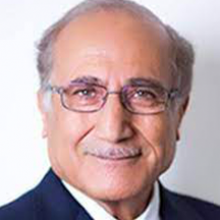You are here
The Templeton and Nobel prizes
Jul 10,2018 - Last updated at Jul 10,2018
The Templeton Prize was established in 1972 and is given annually to prominent persons who make “exceptional contribution to affirming life’s spiritual dimension, whether through insight, discovery or practical works”. The same raison d’etre was used when declaring the 2018 and 46th laureate of the Templeton Prize; His Majesty King Abdullah.
The list includes philosophers, physicists, politicians, evangelists and statesmen. Yet, they all, as the prize judges deemed, were contributors to spiritual values.
Several of the Templeton Prize laureates also won the Nobel Prize, including Mother Teresa, who was the inaugural winner of the Templeton Prize in 1973 and won the Nobel Prize in 1979, the famous Russian author Aleksandr Solzhenitsyn, the Dalai Lama and American physicist and inventor Charles H. Townes.
This is the second time that I advocate that King Abdullah should be the next Nobel Peace Prize winner. He had shattered the glass ceiling of Muslims being religiously centric and has contributed to harmony among the major world religions. Accordingly, he deserves the Nobel Prize.
Yet, the King’s contribution to World peace should not be limited to his role in religious harmonisation and interaction, but to a list of other activities and pursuits with far reaching impact.
He has never given up on peace between Arabs and Israelis. He is spending a great deal of time and energy to arrive at a satisfactory solution to a problem that has been immune to that. Without resolving the Arab-Israeli struggle, world peace will continue to be threatened by eruption of wars.
His Majesty has also been at the avant-garde of combatting terrorism. Under his leadership, Jordan fought forces of darkness and developed a comprehensive scheme to contain and end terrorism. He collaborated with the world alliance to fight terrorism and formed coalitions with both east African and Muslim European countries to thwart the threat of terrorism plaguing these countries or potentially emanating therein. His success in this regard is quite glaring, and Jordan, besieged by unstable countries, managed to contain and dry terrorist threats at the source.
King Abdullah has also demonstrated great resiliency during the Arab Spring. Although anger of the so-called spring spilled over to Jordan, it was dealt with in a humane and a compassionate manner. No blood was spilled and the freedom of expression was neither diminished nor used as a scapegoat. Thus, Jordan emerged as a model of crisis management that is respected.
But the horrendous human cost of the Arab Spring in neighbouring countries was very costly to Jordan. More than 1.7 million refugees from Syria and from other countries like Iraq, Yemen and Libya found safe refuge in Jordan. The number of refugees in Jordan in absolute terms is among the highest in the world, and in percentage terms, is the highest. Given the immense reverberation of much smaller number of refugees on the political and social life of European countries, Jordan in comparison dealt with the issue with the least political and social euphoria and xenophobia.
Jordan is still coping with all of these challenges despite its limited means and the declining welfare of its people.
It is about time that the Nobel Prize acknowledges the deeds of King Abdullah, because by doing so, it will show to the world that the impact and efforts of the King and Jordan in peacemaking do not go unnoticed.












